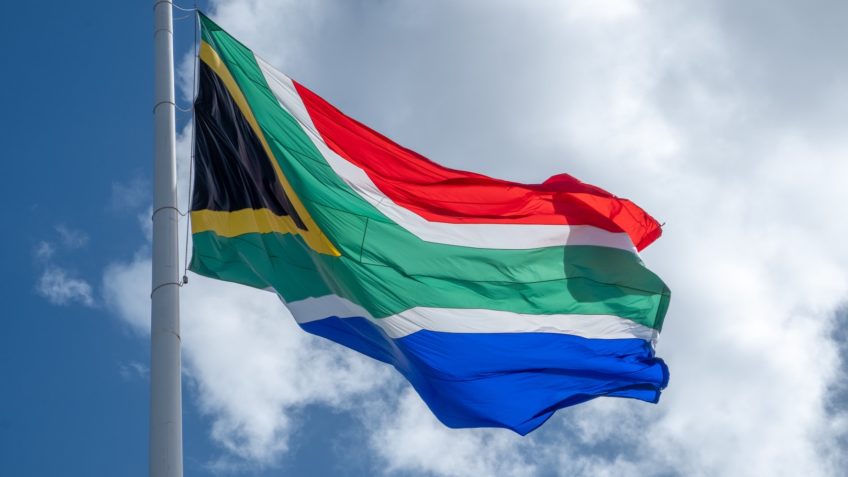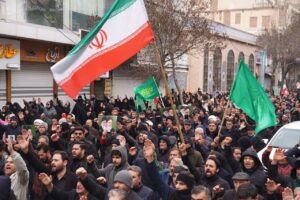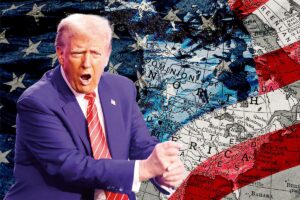
In addition to the socioeconomic problem, the continent’s largest economy is also experiencing political conflict
South Africa, the largest economy on the African continent, has suffered from political and socioeconomic problems that have been affecting the country’s economic growth for years.
Entities project an economic slowdown due to the instability of service provision by the state-owned energy company, Eskom. South Africans also witness the political conflicts led by the current president, Cyril Ramaphosaand by former president Jacob Zuma.
The country, which has 32.8% of the adult population unemployed, is experiencing blackouts that cause the economy to stop moving up to US$50 million (R$247.8 million) per day, according to a study by the North American consultancy Stratfor.
Public safety, automobile traffic and hospitals in South Africa are affected by instability and pose a greater risk to the safety and health of 62.467 million citizens.
The problem of energy services also makes the country dependent on products from abroad to maintain its own supply, directly influencing GDP (Gross Domestic Product) and slowing down the national economy.
According to the IMF (International Monetary Fund), South Africa’s economy grew only 0.26% before the pandemic, in 2019, and fell approximately 6% post-covid, in 2020.
Numbers grew again in 2021, but the estimate is that the country will not grow more than 2% until 2028.
The low price of raw materials exported by the country makes this difficult. The decrease in the value of sales abroad clashes with the high import costs that the country needs to meet energy demand.
Second analysis also Stratforthe failed attempts to recover state-owned companies – such as Eskom and the state-owned transport company Transnet –, combined with the country’s inefficient labor regulations and the lack of qualified labor, prevent the country from growing.
The ruling party, the African National Congress (ANC), is trying to overcome the country’s situation of economic stagnation. During the Covid-19 pandemic, South Africa increased spending for social welfare, but the measure increased the national public debt.
POLITICAL CONTEXT
In 2018, then-president Jacob Zuma was forced by his party to resign from office. He was accused by the ANC of widespread corruption in his government by facilitating a multibillion-dollar government contract in exchange for bribes.
Zuma’s position was then taken by his deputy, Cyril Ramaphosa, who began his government promising to end corruption in the country and rivaling his predecessor.
In June 2021, the trial of the former president took place, who did not appear in court. He was sentenced to 15 years in prison. His arrest, on July 8 of the same year, generated revolt among the population, who attacked buildings and vandalized stores. More than 300 people died in protests, according to an official report from the South African government.
In September 2021, Zuma was placed on probation due to his health condition and, without leaving the party, in December 2023 he began supporting the ANC opposition party Umkhonto we Sizwe, also known as MK.
Umkhonto we Sizwe was the armed wing of the ANC and was founded by Nelson Mandela in 1961 to fight the government of the time.
The situation was disapproved by his party which, in January of this year, prevented him from running in the legislative and, consequently, presidential elections. In South Africa, voters vote only for the legislature, which then chooses the chief executive.
ELECTIONS IN MAY
The ANC has ruled the country since the implementation of the democratic regime in 1994. The group has managed to maintain an absolute majority in Parliament since then.
However, the recent clash between Zuma and Ramaphosa and socio-economic problems could lead to the party losing seats and, consequently, needing to reach agreements with other parties to pass laws.
According to search from the University of the Witwatersrands, Ramaphosa’s party has 42% of voting intentions. The liberal Democratic Alliance (DA) party has 19% of voting intentions and the left-wing Economic Freedom Fighters (EFF) party has 16%.
A party recently supported by Zuma, Umkhonto we Sizwe, has unknown popular appeal, according to the study.
The former South African leader, despite being opposed to his party and facing resistance to remain a member, states that “will die as a member of the ANC”.
This report was produced by journalism intern José Luis Costa under the supervision of assistant editor Ighor Nóbrega.
Source: https://www.poder360.com.br/economia/africa-do-sul-sofre-com-fornecimento-de-energia-e-economia-desacelera/

